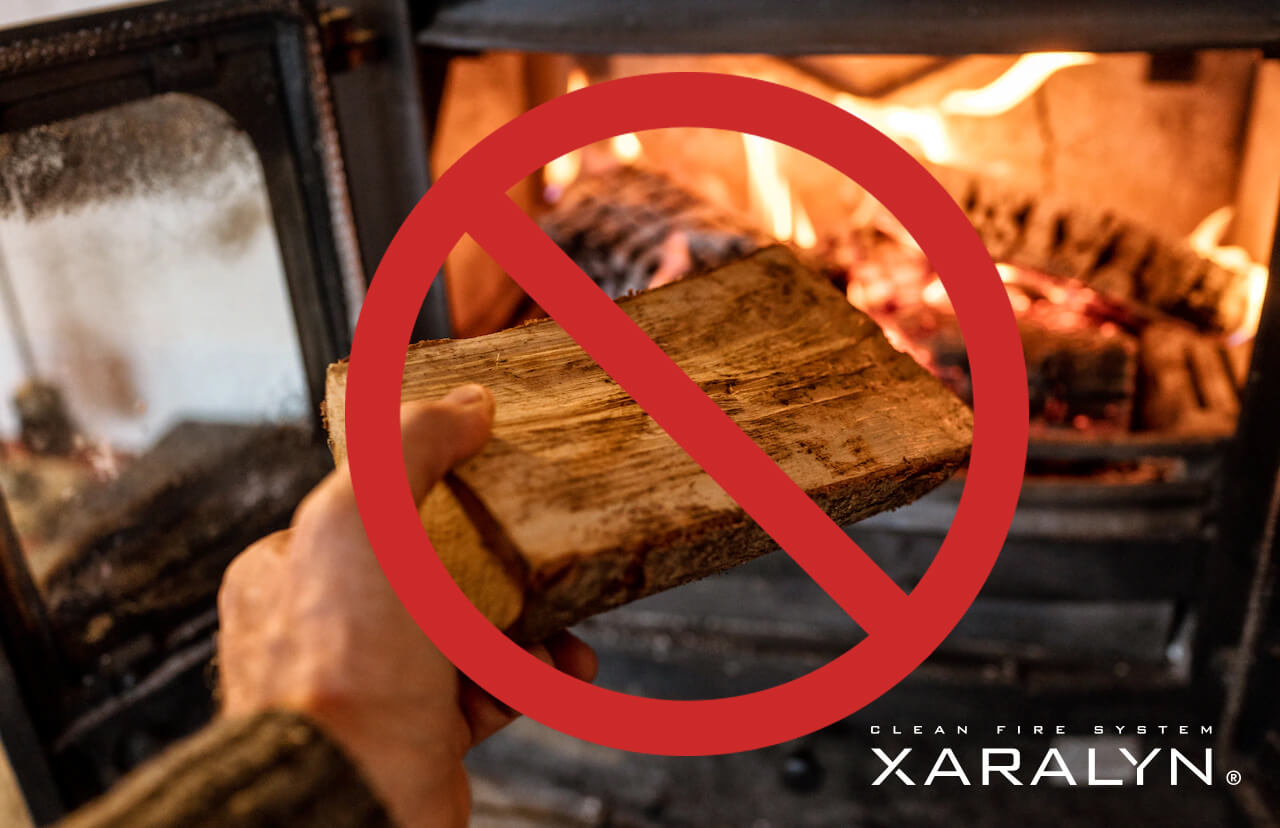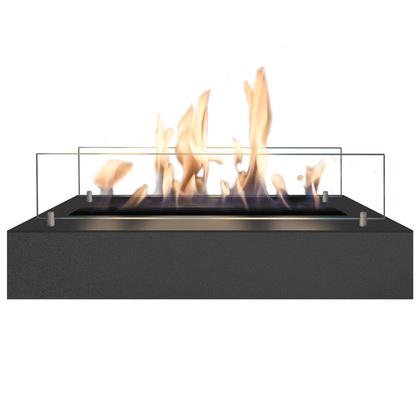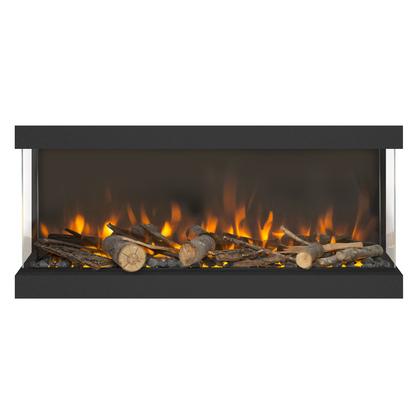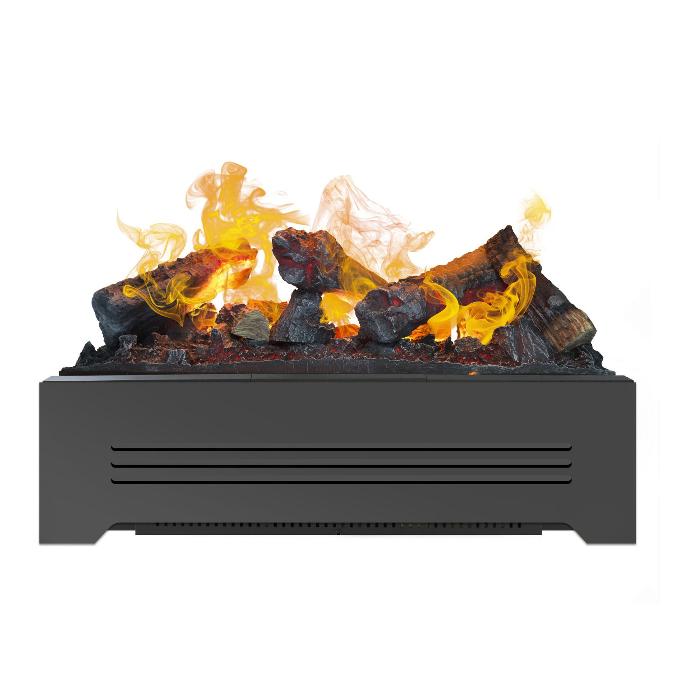A crackling wood fire has been bringing coziness to your home for centuries. But did you know that the smoke releases harmful substances that are bad for your lungs and the environment? One in three people experiences discomfort from smoke. Wood smoke can cause serious complaints for children, the elderly, and people with respiratory problems. By not lighting a wood fire, we collectively contribute to cleaner air in the city and a healthier living environment for everyone.
Ban on burning wood in Utrecht (the Netherlands) starting in 2030: Is this the future of wood burning fireplaces?
In 2030, the city of Utrecht will implement a ban on burning wood in fireplaces, stoves, and other wood-burning appliances within urban areas. This measure is prompted by growing concerns about air pollution and its effects on public health. In this article, we examine the reasons behind the ban, its consequences for residents, and the available alternatives for those who still want the cozy atmosphere of a fireplace at home. We also highlight the role of information campaigns and key insights from the media and public debate on this topic.

Why a ban on wood-burning?
The ban in Utrecht is primarily aimed at improving air quality in urban areas. Wood burning is a significant source of fine particles, soot, and other harmful substances. According to the RIVM, wood smoke contributes to health issues such as asthma and lung diseases, and prolonged exposure increases the risk of cardiovascular diseases. In densely populated areas like Utrecht, wood smoke causes a significant rise in particulate matter during winter months, which, according to research, can lead to respiratory problems for vulnerable groups like the elderly and children.
For more information, you can consult this article from the AD , which delves deeper into the problems surrounding wood smoke and its health risks.
Stookwijzer: What is it and how does it work?
When weather conditions are unfavorable, smoke often lingers longer, leading to a higher concentration of pollutants in the air. In areas where air quality is already compromised due to fine particles, wood smoke can worsen the situation. This is why a burning alert has been established: once the RIVM issues a burning alert, it is advised not to burn wood on that day. This measure aims to reduce health complaints among residents and protect air quality.
To support this, there is the Stookwijzeran online platform from the Ministry of Infrastructure and Water Management. This platform provides advice on using wood and pellet stoves more efficiently and with less pollution. The Stookwijzer informs users about proper burning techniques, the importance of good fuel, and maintenance of their stove, helping to reduce the emission of harmful substances like fine particles and carbon monoxide. While this helps to somewhat limit the impact of wood burning, avoiding burning altogether remains the best way to contribute to a healthier living environment and air quality.
The situation in Utrecht
The ban in Utrecht is part of a broader strategy by the city to make it healthier and more sustainable. Alongside promoting electric transport and reducing traffic in the city center, the city sees the reduction of wood burning as a necessary step. The city council has indicated plans to collaborate with other municipalities to establish guidelines and offer subsidies to residents who want to remove their wood stoves or switch to sustainable alternatives.
In the Volkskrant you can read an article about the policy of the municipality of Utrecht and the collaboration with other cities to improve air quality.
Which fireplaces are covered by the ban?
The ban in Utrecht applies from 2030 onwards to all forms of wood burning in private homes within urban areas, including:
- Open fireplaces
- Wood stoves
- Pellet stoves
- Outdoor fireplaces and fire pits (in certain neighborhoods)
The city is considering fines for people who continue to burn wood, enforcing this through reports and inspections. They are also looking into technologies that can detect smoke, allowing for more targeted inspections.
Impact of the ban on households
For many households, this means they will need to find an alternative for their current wood stove or open fireplace. The city is exploring the possibility of providing subsidies for removing existing fireplaces and purchasing electric or bio-ethanol fireplaces to encourage residents to transition to eco-friendlier options without harmful emissions.
The ban could also have financial consequences for companies specializing in wood-burning stoves and fireplaces, as they will lose a large part of their customers in the Utrecht region. On the other hand, this offers opportunities for companies that supply sustainable heating options, such as electric fireplaces and innovative water vapor fireplaces, that work without smoke and harmful substances.
More information about the regulations surrounding the burning ban in Utrecht can be found on this website.
Alternatives to wood-burning stoves
Despite the ban, residents of Utrecht can still enjoy the ambiance of a fireplace. Various sustainable and smoke-free alternatives offer the same warmth and coziness, such as:
- Electric fireplaces: Modern electric fireplaces are more efficient than ever, providing a realistic flame effect without needing a vent.
- Bioethanol fireplaces:These fireplaces run on sustainable, biodegradable fuel, producing no harmful substances.
- Water vapor fireplaces:Using mist technology, these fireplaces create a realistic flame effect and are completely safe, producing no smoke.
Insights from Arjen Lubach about wood burning
The social debate about wood smoke was reinforced by Arjen Lubach in his program Zondag met Lubach. Lubach pointed out the serious consequences of wood smoke for air quality and health risks. In his broadcast he made it clear that the problem not only affects Utrecht, but the entire society. He emphasized that wood burning, although attractive and often seen as an environmentally friendly alternative, can in reality be very harmful.
You can watch the broadcast on Youtube
Reactions from society
The ban has provoked both positive and negative reactions. Residents who have already suffered from smoke from neighbors generally respond positively and see it as a step towards healthier living conditions. However, opponents point out the infringement on their freedom and the costs associated with removing or replacing a wood stove. Some also fear that this ban is just a start, and that there will be increasing restrictions on other household activities and installations that cause emissions.
Fortunately, replacing a wood stove does not have to be a major investment. Xaralyn offers an extensive range of fireplaces that can function as an alternative to a wood stove or wood-burning fireplace.
Conclusoin
The burning ban in Utrecht from 2030 marks a significant step in the city’s sustainability policy. While it requires adaptation from both residents and businesses, it also offers new opportunities for a healthier environment. By opting for alternatives like electric and bio-ethanol fireplaces, residents can still enjoy the warm ambiance of a fireplace, but without harmful emissions.
Utrecht is setting an example for other municipalities and shows that it is possible to take measures that improve air quality and contribute to a healthier living environment. Only time will tell whether this ban will be followed in other cities.



